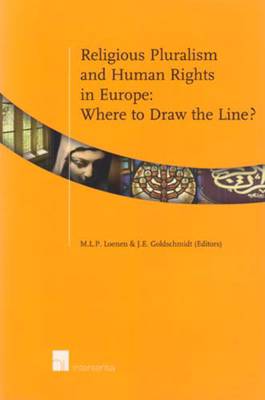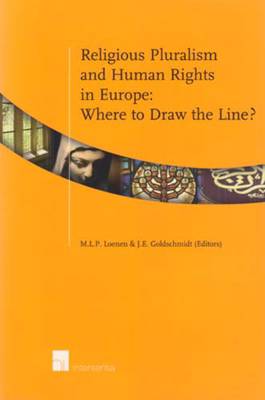
- Afhalen na 1 uur in een winkel met voorraad
- Gratis thuislevering in België vanaf € 30
- Ruim aanbod met 7 miljoen producten
- Afhalen na 1 uur in een winkel met voorraad
- Gratis thuislevering in België vanaf € 30
- Ruim aanbod met 7 miljoen producten
Zoeken
Religious Pluralism and Human Rights in Europe
Where to Draw the Line?
Titia Loenen, Jenny Goldschmidt
Paperback | Engels
€ 65,00
+ 130 punten
Omschrijving
'How should we deal with religious pluralism in contemporary Europe from a human rights perspective and where should we draw the line, if any?' This was the central question of an expert seminar held in 2006 at Utrecht University to celebrate the inaugural address of Abdullahi An-Na'im, who occupied the G.J. Wiarda Chair at the Netherlands Institute of Human Rights (SIM) in 2005/2006. His address, as well as the contributions to the seminar, is published in this volume. Though religious pluralism in itself is anything but new in Europe, the influx of large groups of non-Christians, especially Muslims, and the political climate after recent terrorist attacks have profoundly changed the terms of the debate on how to deal with it. Should all religions be treated the same, or is it legitimate to take European Christian heritage into account? Does religion deserve more protection than culture? What does it mean if we say the State has to be secular and/or neutral? How should freedom of religion be dealt with if it conflicts with other fundamental rights such as sex equality? And how should one approach limitations on the freedom of expression that are related to religion, such as hate speech bans or criminalisation of glorifying terrorism? The questions are set against the background of modern notions of citizenship and the European human rights framework. Though they do not lend themselves to easy answers, this collection endeavours to provide ample inspiration to take the discussion a step further.
Specificaties
Betrokkenen
- Auteur(s):
- Uitgeverij:
Inhoud
- Aantal bladzijden:
- 336
- Taal:
- Engels
Eigenschappen
- Productcode (EAN):
- 9789050956420
- Verschijningsdatum:
- 26/03/2007
- Uitvoering:
- Paperback
- Formaat:
- Trade paperback (VS)
- Afmetingen:
- 159 mm x 241 mm
- Gewicht:
- 562 g

Alleen bij Standaard Boekhandel
+ 130 punten op je klantenkaart van Standaard Boekhandel
Beoordelingen
We publiceren alleen reviews die voldoen aan de voorwaarden voor reviews. Bekijk onze voorwaarden voor reviews.











